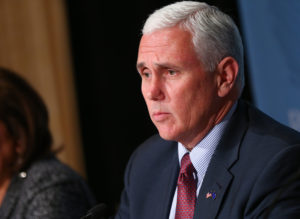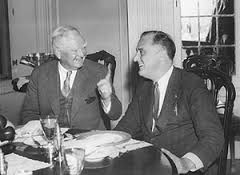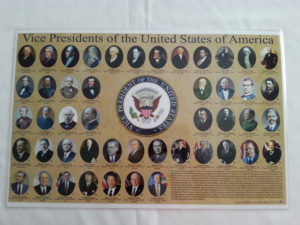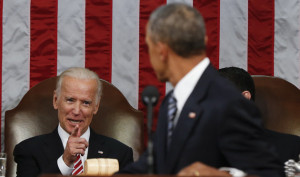Why, oh why is Vice President Mike Pence so darn angry at The New York Times?
The allegedly “failing” newspaper has published a story revealing that Pence’s political team is working behind the scenes to mount a presidential campaign in 2020. Pence is simply outraged, I tell you. Outraged that the Times would report such a thing.
Pence is like all the other men who have preceded him in the second-highest office in the land. They all want to be the Top Dog, the Big Man, Numero Uno. Is Pence so different? I doubt it. Seriously.
To be sure, the NY Times said Pence is planning a primary campaign against Donald J. Trump Sr. His plans presume that the president won’t seek re-election, or that he will be otherwise, um, unavailable to run for a second term.
What might prevent Trump from running in 2020? Let’s see:
* He could be impeached and tossed out of office over allegations that he obstructed justice in the Russia investigation or that his campaign colluded with the Russians. There might be some financial issues that arise from special counsel Robert Mueller’s expanding investigation. Will it happen? I ain’t projecting such a thing. Or … the president might resign.
* The incessant armchair psychoanalysis might determine that the president suffers from some sort of serious personality disorder that compels him to tweet so often and with so much damaging effectiveness. I won’t join that debate, either.
* Trump might figure he cannot stand the incessant failure to get anything done. He’s not used to working with those who resist him at every turn. Trump’s business background has placed him at the top of the ladder. He’s got to share that standing now with Congress and the courts.
* Or, maybe the president can just declare victory — say “mission accomplished” — and pack it all up and head back to Mar-a-Lago, Bedminster or some other posh digs that will remove him and his family from that “real dump” where they live part time in Washington, D.C.
Is it so wrong to believe the vice president is getting ready for any eventuality? Is it wrong to presume that the No. 2 guy wants to ascend to the No. 1 spot?
The media have done a great job of keeping the public informed about the goings-on related to the Trump administration. The New York Times has just racked up another scoop.
Pipe down, Mr. Vice President.




